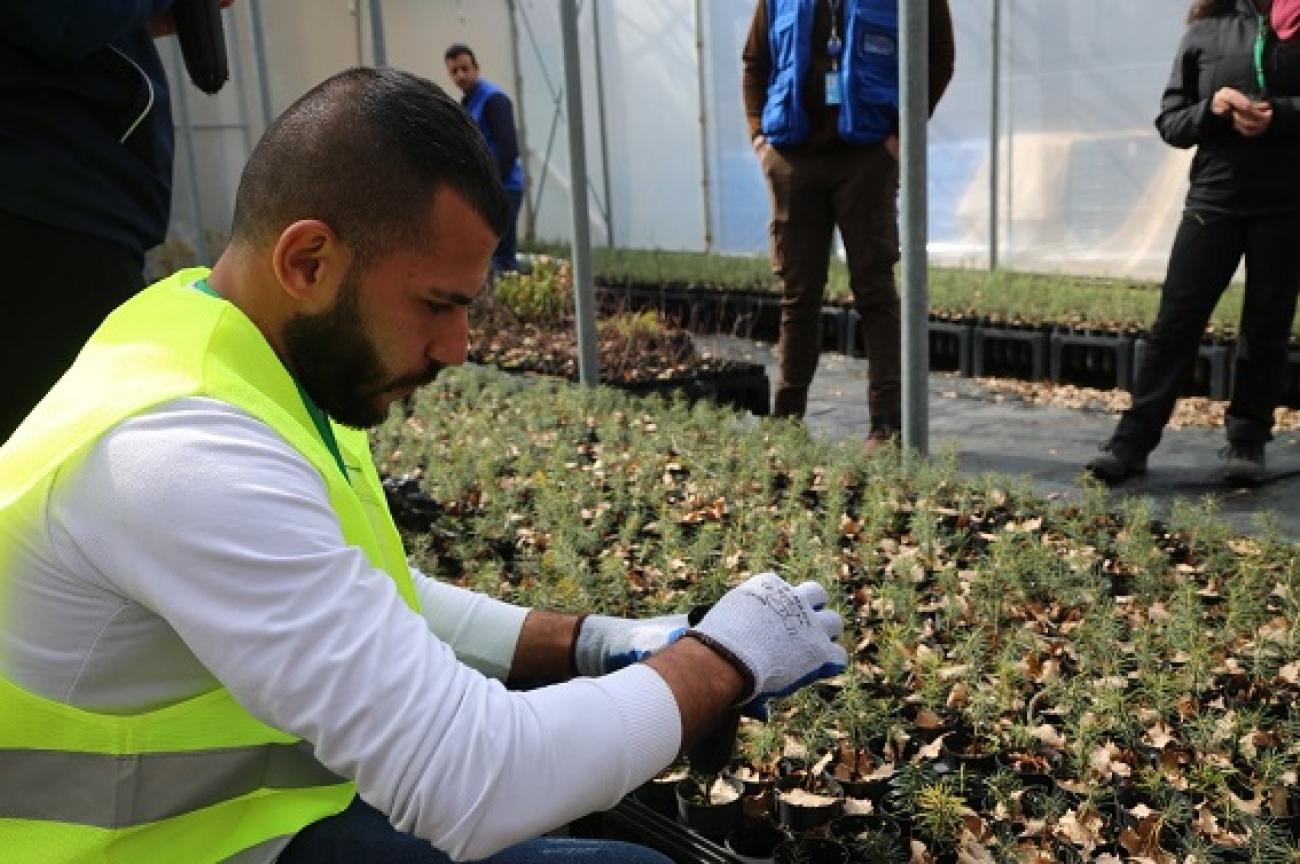In an outdoor classroom situated at the heart of one of Lebanon’s most picturesque and rich forests, the World Food Programme (WFP) is running a project with the aim of equipping participants who come from different backgrounds with theoretical and practical skills they need to master forest management techniques.
“If you plant a tree in Ehden we will be forever grateful, and this project did way more than that. It exceeded everyone’s expectations,” says Chady, one of 19 participants who collectively planted 9,000 cedar, wild apple and wild pear tree seedlings as part of the reforestation activities in Ehden’s nature reserve. Chady explained how he felt fulfilled as he was giving back to the village he is born and raised in.
Through funds from Germany’s Federal Ministry for Economic Cooperation and Development (BMZ) and in collaboration with the Lebanon Reforestation Initiative (LRI) and Horsh Ehden Nature Reserve (HENR), WFP is upgrading the reserve’s nursery and seed collection processes, mulching seedlings, cleaning road edges to prevent forest fires as temperatures begin to rise and planting more than 20,500 seedlings.
WFP’s livelihood projects equip participants with vital skills that boost their livelihoods. In exchange for their work, participants are supported with an e-card that helps them buy food and meet their nutrition needs.
Projects like this one are common ground for individuals who are grouped together regardless of background and experiences; be it Lebanese or refugee, male or female, young or old. These interventions are also designed with local authorities as a response to the country’s most pressing needs.
“Older participants who have knowledge in agriculture also play a huge role. They pitch their inputs every now and then, introducing us to the techniques they’ve been applying to their own lands,” says Elyse Elias, LRI’s programme manager stressing on the importance of diversity. According to Elyse, seedlings were not the only things that bloomed as participants who were planting together formed friendships after hours and shared coffee and snacks.
One of the participants who expanded his list of friends – online and on the project site – was Ahmad Sinjer, a father of four from Akkar who came across this intervention’s call for participation as he was scrolling through social media. Ahmad, who already runs a small family business in agriculture, can now extract seeds on his own instead of buying them. “The money I save helps me expand my business,” he says. For Ahmad, his trees are a priceless treasure and reserving Lebanon’s forests is a goal he is working on so that his children are raised in a healthier and safer environment.
By 2021, WFP aims to reach 3,370 beneficiaries all over Lebanon through its reforestation projects. In the Bekaa, WFP is planting tens of thousands of seedlings in addition to rehabilitating public gardens and clearing forest trails in Hermel, Deir el Ahmar, Baalbeck, Qaroun and Majdal Anjar to name a few.
As for north Lebanon, WFP is planting seedlings, rehabilitating public gardens, and training women on first aid response, firefighting, food safety and growing herbs and flowers in Dunniyeh, Qobayyat, Saysouk, Bqarzala and Ehden.
While in the south’s Blida, Tiri, Aita el Shaab and Qana, WFP is maintaining the area’s greenery by cultivating thousands of seedlings, introducing new and unique ones that enrich local biodiversity. WFP is also establishing and rehabilitating 3 water ponds that support forests and agriculture irrigation.
Not only do forests help stabilise the climate, regulate ecosystems and protect biodiversity, they also support livelihoods and are an asset of the food security landscape. Forests play a vigorous role in supplementing global food, nutrition security and eventually reaching a #ZeroHunger world – one of WFP’s core goals.










